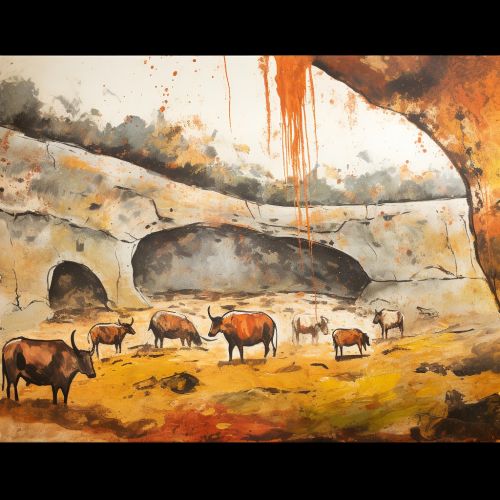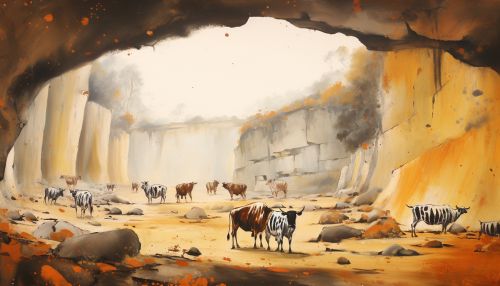History of France
Prehistoric France
The earliest traces of human life in what is now France date from approximately 1.8 million years ago. Humans were then confronted by a harsh and variable climate, marked by several glacial eras. Early hominids led a nomadic hunter-gatherer life. France has a large number of decorated caves from the upper Palaeolithic era, including one of the most famous and best preserved: Lascaux.


Gaul
Around 1250 BC, the Celts, also known as Gauls, migrated from Central Europe to the Atlantic coast. They built farming communities and introduced the use of iron. By 500 BC, they had established political institutions, owned livestock, and had developed skills in the production of pottery and weaving. The Gauls mixed with Roman settlers and eventually adopted Roman speech (Latin, from which the French language evolved) and Roman culture. The Roman polytheism merged with the Gallic paganism into the same syncretism.
Roman Gaul
The Roman era of Gaul began in 58 BC, when Julius Caesar conquered the region for Rome. The Gauls were gradually assimilated by the Romans, a process of Romanization, which integrated the Gauls into the Empire. The Roman era in France was marked by urbanization, the spread of Christianity, and the establishment of a strong administrative and legal system.
Middle Ages
In the 5th century, the Western Roman Empire declined and was overrun by various Germanic tribes, the Franks being the most dominant. The Franks established a strong state under their king, Clovis. The Frankish kingdom reached its peak under Charlemagne, who was crowned Emperor of the Romans by Pope Leo III in 800 AD. The Middle Ages in France were marked by the spread of Christianity, feudalism, and the growth of towns and trade.
Renaissance
The French Renaissance saw a long set of wars, known as the Italian Wars, between the Kingdom of France and the powerful Holy Roman Empire. It saw France become a major power in Europe, led by powerful monarchs such as Louis XII and Francis I. The Renaissance era was also marked by significant developments in French culture, including the spread of the Reformation, the development of New World colonies, and the rise of absolutist monarchy.
Absolutism and Revolution
The 17th century was dominated by the political and cultural hegemony of France under the reign of Louis XIV, the Sun King. The century was marked by the growth of royal power, the building of the Palace of Versailles, and the expansion of French influence across Europe. However, the late 18th century saw the eruption of the French Revolution, which overthrew the monarchy and established a republic. The revolution was a period of radical political and societal change in France, marked by the collapse of the Bourbon Monarchy, the rise of radical political factions, and the eventual rise of Napoleon Bonaparte.
Napoleonic Era
The Napoleonic Era encompasses the period in the history of France and Europe, generally classified as including the French Revolution and the Napoleonic Wars. Napoleon Bonaparte seized power in a coup in 1799, making himself First Consul, and later Emperor of the French. His legal reform, the Napoleonic Code, has been a major influence on many civil law jurisdictions worldwide.
19th Century
The 19th century in France was marked by a series of republics and empires, with the country oscillating between republican, Napoleonic, and monarchist rule. The century was also marked by the Industrial Revolution, which transformed the country from a primarily agricultural society to an industrial one.
20th Century
The 20th century was marked by two world wars, in which France played a major role. The country was occupied by Germany in World War II, but was liberated by the Allies in 1944. In the aftermath of the war, France underwent a process of decolonization, losing many of its overseas territories. The late 20th century was marked by economic growth, known as the Trente Glorieuses, as well as social and political upheaval in the form of student protests and the general strike of 1968.
